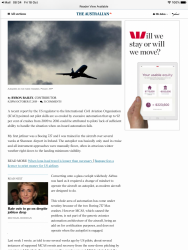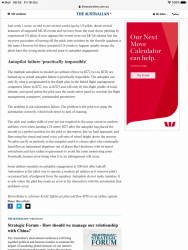jb747
Enthusiast
- Joined
- Mar 9, 2010
- Posts
- 13,505
I regularly got "Worlds' Best Practice" rammed down my neck in the mining game.
I’ve never heard an MBA try to justify the phrase. My take on it was that it was engineered to deny the possibility of any arguments against whatever was being pushed. If it’s WBP, then how can you possibly be against it (no matter how stupid). Downstream it must also make any procedural changes more difficult too. If you’re already at WBP, then how can you possibly come up with anything better.
You very quickly learn that any use of such phrases is invariably tied to flawed changes, which are simply part of the race to the bottom. MCAS was probably WBP engineering. The only flaw was that the executives weren’t retired by the time the issues came to light.
















